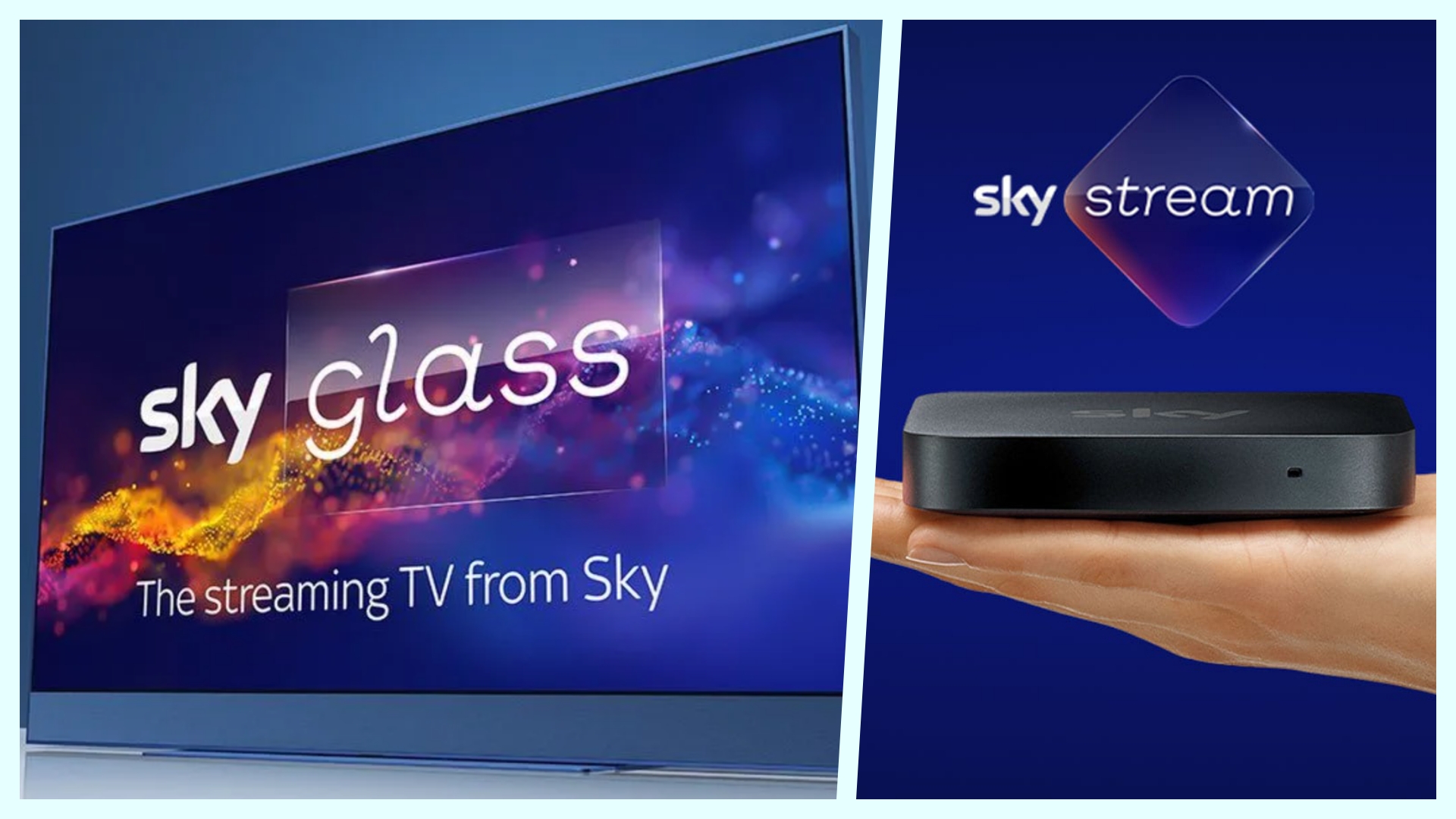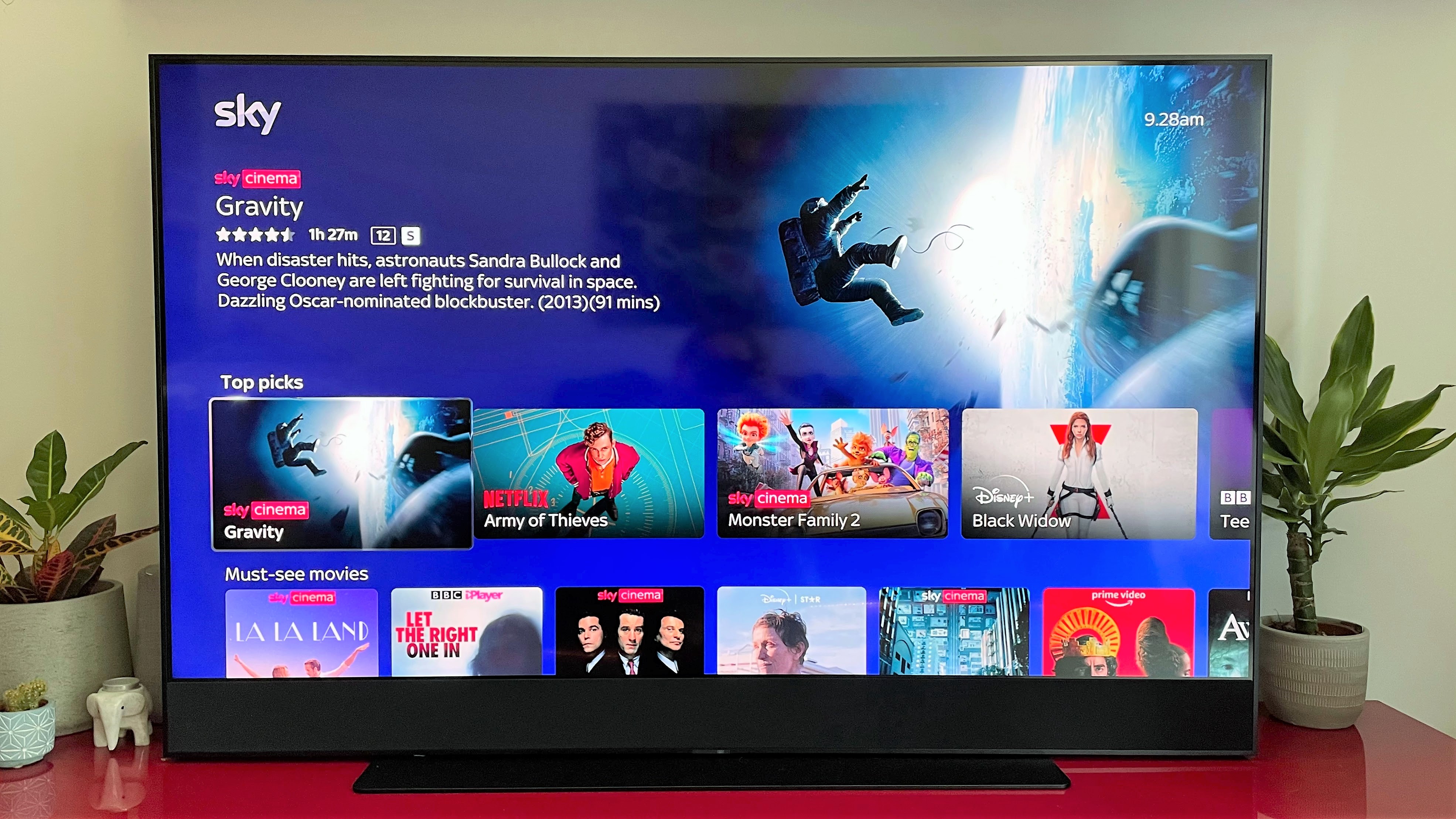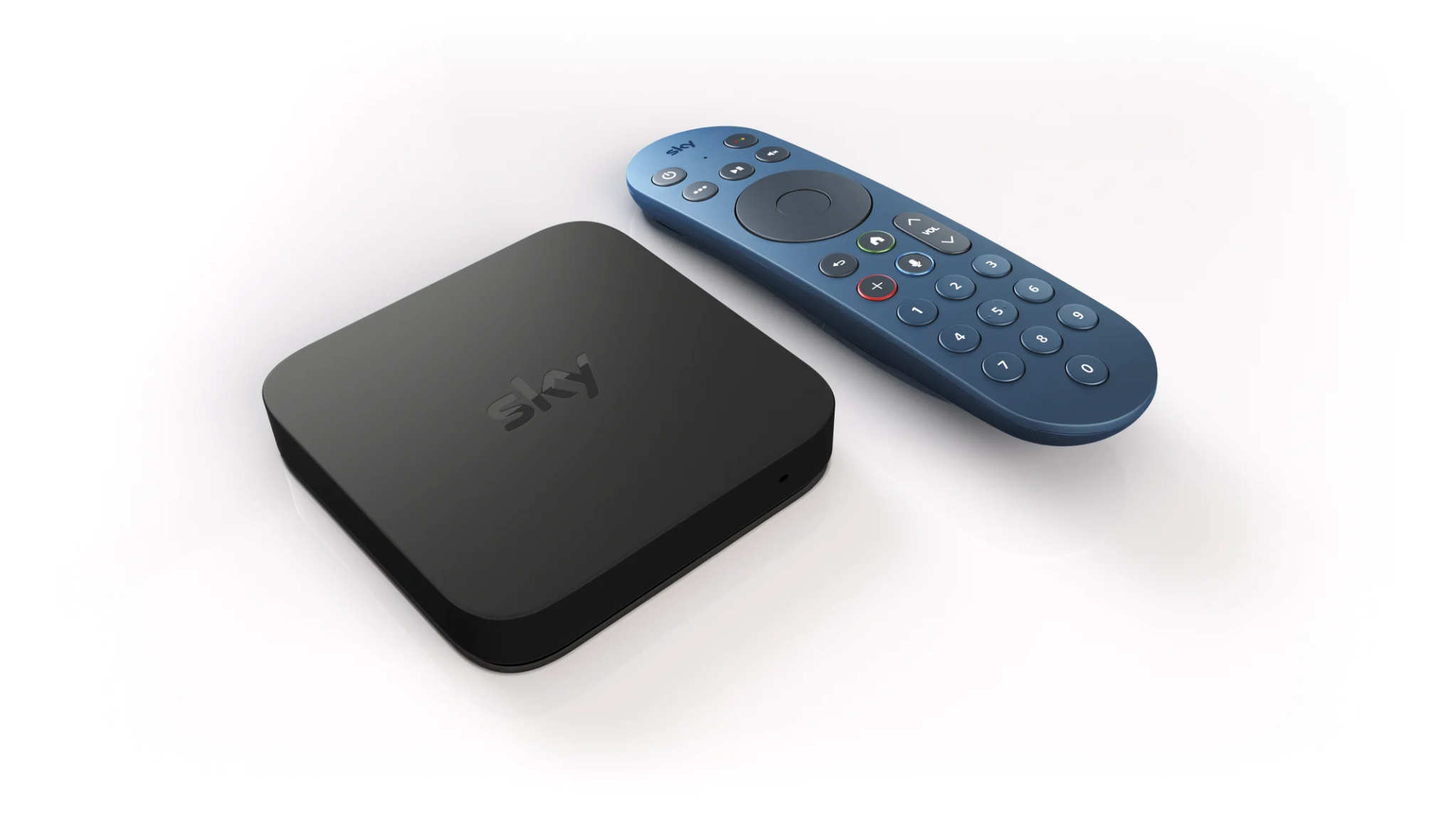Sky Stream or Sky Glass? Which Sky TV hardware to upgrade to
Which of these Sky TV services is right for you?


T3 is a huge fan of Sky TV, with us recommending its Sky Q set-top box as well as new, streaming-based Sky Glass and Sky Stream hardware as delivering the best all-in-one TV experience available today in the UK.
However, with the introduction of the Sky Stream, many people who are considering a Sky TV upgrade will be wondering which Sky hardware is right for them, and with Sky looking to faze out satellite dishes, its two streaming options will be where most people will be looking.
As such, here we briefly outline what both Sky Stream and Sky Glass offer, and then make a recommendation on who we think they'll be best for.

Why to upgrade to Sky Glass
As we note in our Sky Glass review, it is an all-in-one system whereby the traditional Sky set top box functionality is actually baked into a 4K HDR TV, which itself also comes with a soundbar built in as well.
This means that with one Sky Glass TV in your home, which is powered by just one cable, you have your 4K HDR TV, soundbar and Sky box in one piece of hardware. There's no doubting that will appeal to many people, with the system capable of streaming content in 4K HDR and with Dolby Atmos audio.
What makes Sky Glass more unique, though, is that it is bought as part of a monthly Sky subscription service, so you pick your TV size (there are three sizes available) and then the cost of it is then added to the Sky TV plan you build. This means that you pay for the Sky Glass on a monthly basis along with your content plan, instead of paying for the hardware all in one fee upfront.
Sky Glass does not require a satellite dish and serves all of its content, both live and on-demand, via a broadband connection.
Get all the latest news, reviews, deals and buying guides on gorgeous tech, home and active products from the T3 experts
Who we think it is for
As to who we think Sky Glass will be a good fit for, the obvious answer is anyone who has a good internet connection who is also looking to upgrade their TV as well as join Sky or upgrade their package. That's a lot of people in our opinion.
It's also for anyone who wants a no-fuss, streamlined, all-in-one TV solution. It's plug-and-play easy to use, and installation is actually included in the purchase fee, too, so you don't even have to do the initial setup.
The ability to spread the cost also cannot be overlooked. If you don't have the capital to drop going on a grand on one of the best 4K TVs, then this is a good way to get a great - if not truly top tier - 4K HDR TV and soundbar and spread the cost out over a couple of years interest-free.
Who we don't think it is for
The obvious answer here is those people who already have an equal quality if not better home cinema setup. For example, if you have an LG C1 OLED TV partnered with one of the best soundbars. In that case, chances are the Sky Glass panel and soundbar won't beat what you already have, so there's no reason to upgrade to Sky Glass. For those people, Sky has another product that will be better suited...

Why to upgrade to Sky Stream
Sky Stream is the brand new piece of hardware from Sky. And, simply put, it delivers the Sky Glass experience but without the TV and soundbar connected – you're getting the Sky Glass user interface. It is essentially a media streamer, and one that can be plugged into any display with a HDMI port, meaning basically all TVs and monitors.
The Sky Stream resembles a palm-sized puck and delivers access to any subscribed Sky TV channels and content as well as access to all of today's most popular streaming apps, such as Netflix, Disney Plus and Prime Video. If you've got subscriptions to any of these services then you can sign in and enjoy them all through the connected Sky TV user interface.
The Sky Stream delivers UHD 4K HDR streaming and Dolby Atmos audio compatibility, too, so if you've got a 4K HDR screen and Dolby Atmos sound system already then this streaming puck will work perfectly with it.
As with Sky Glass, Sky Stream is bought on a plan, with 18 months as the standard. A 31-day rolling plan is also available for those who want to go contract-free.
Who we think it is for
The obvious answer here is people who want to stream Sky TV and use the Sky Glass interface but don't want or need the hardware delivered by Sky Glass. If you've got a TV you're very happy with then Sky Stream is available for cheaper than Sky Glass and is the obvious choice.
It's also a better option, probably, for many students, as its footprint is minimal and it will be easier to transport during moves. Did we say it is cheaper, too?
Again, as with Sky Glass, we feel this is a product that people with good broadband speeds should buy, as the whole experience is delivered via that connection, with no satellite dish involved.
Who we don't think it is for
Most people who, right now, already have a Sky Q set-top box and satellite dish system installed. There's basically no reason to switch to Sky Stream if you already have the hardware in and on your home, with the older system offering a hybrid between digitally delivered on-demand content streamed over the internet, and live TV beamed via satellite into the set-top box.
If you need a new 4K HDR TV and sound system, too, then really we think you should consider Sky Glass over Sky Stream, as while the former does cost more per month, you're getting a great all-round package that will work for years to come and almost certainly will cost less than buying a separate 4K HDR TV and soundbar of equal or better quality.
Sky TV streaming hardware verdict
Hopefully we've summated what both Sky Glass and Sky Stream offer for you here. Much of which piece of hardware you choose will rest on various other factors, such as budget and current A/V home entertainment setup, but there is one common between the two – buy if you have a good internet connection, as if you don't you won't get the best experience either system can offer.
If you live in the sticks and don't have good internet, though, then we think Sky Q remains your better choice right now, as it has the fall-back safety net of satellite TV, as well as a few other benefits, such as on-device storage and locally-stored recordings, both of which are super useful during internet blackouts.

Rob has been writing about computing, gaming, mobile, home entertainment technology, toys (specifically Lego and board games), smart home and more for over 15 years. As the editor of PC Gamer, and former Deputy Editor for T3.com, you can find Rob's work in magazines, bookazines and online, as well as on podcasts and videos, too. Outside of his work Rob is passionate about motorbikes, skiing/snowboarding and team sports, with football and cricket his two favourites.









